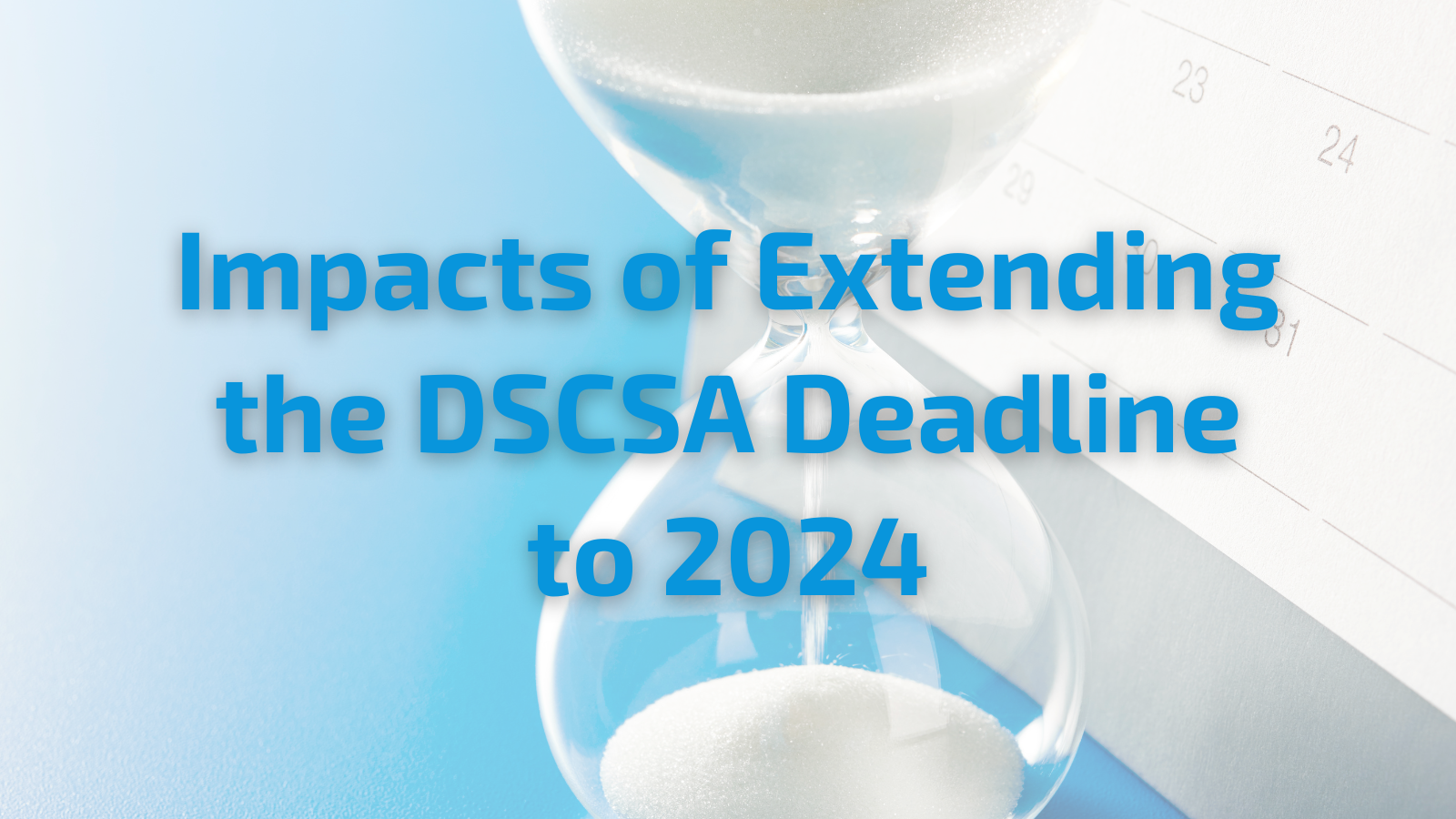Impacts of Extending the DSCSA Deadline to 2024
By Andre Caprio | Posted on October 24, 2023

Late last month, the US Food and Drug Administration (FDA) announced that enforcement of the Drug Supply Chain Security Act (DSCSA) would be postponed from November 2023 until November 2024. The announcement of the temporary reprieve from enforcing the requirements for system-wide electronic interoperable systems for tracking products through the supply chain was warmly received, as the industry as whole needed more time for compliance with the law.
The enforcement discretion means that while the industry should comply with the regulation, the FDA will not audit or fine organizations not in compliance. The tone of the announcement was definitive and signaled to the industry that this enforcement extension will be the last and the November 2024 deadline should be taken seriously. We now have one year for all stakeholders in the pharmaceutical supply chain to comply with the DSCSA serialization regulation, which aims to improve patient safety.
Pharmaceutical Supply Chain Stakeholders Impacted
The industry welcomed the temporary relief from enforcement, as it is only partially ready for transacting serialized data amongst the entire supply chain. The pharmaceutical supply chain has three segments: manufacturers, wholesale distributors, and dispensers or pharmacies, and there are organizations in each that are not ready for DSCSA compliance.
The manufacturers are in the best position, as the majority are ready for compliance. Most are currently serializing the physical products they develop and transmitting the data. A small selection, perhaps 15% of manufacturers, may not be ready, but most are prepared to proceed with the regulation.
The wholesale distributors and the dispensers will feel the bulk of the enforcement relief. Compliance for the wholesale distributors is the most complex, and many are behind on interoperability. That is due to their extensive number of trading partners. For example, the Big Three family (the three largest pharmaceutical distributors in the US territory) buy directly from every pharmaceutical manufacturer, so they need to create and test connections between these hundreds of trading partners. The approximately other 1,000 licensed wholesale distributors in the United States also must connect with the large pool of manufacturers from whom they purchase their products.
The other sector that gains significantly from the enforcement reprieve is the dispensers. Many in this sector are way behind on the road to compliance, especially the independent pharmacies, and that is because they lack the necessary budget for a pharma serialization solution.
The wholesale distributors and dispensers will benefit the most from the enforcement relief, and they have the majority of the work needed to be ready for 2024.
Why the Enforcement Discretion
The industry had voiced concerns over their readiness to comply with the law’s mandate for EPCIS unit-level serialized data to be passed amongst pharmaceutical trading partners successfully. The Healthcare Distribution Alliance (HDA) was a driver in the deadline delay. Earlier this year, they requested that the FDA give an extension for DSCSA compliance, stating concerns that the pharmaceutical supply chain could be disrupted if the law was enforced in 2023. Thankfully, the FDA responded with a temporary enforcement reprieve.
Challenges for Industry-Wide Compliance
All pharmaceutical supply chain stakeholders must stay vigilant on their DSCSA journey to ensure compliance and interoperability with their respective trading partners. Whether they partner with a supplier or downstream customer, companies need to keep making progress on their interconnections.
Over the past ten years, when the FDA gave DSCSA deadline extensions many organizations took a breath, stepped back, shifted priorities, and waited to make progress on their project. That is not what organizations should do today. The FDA has fined organizations that have not complied with earlier DSCSA requirements, and there is no reason to believe they won’t do that again at this last phase of compliance.
Concerns have been expressed when it comes to enforcement, that the FDA does not have the resources needed to audit the vast pharma supply chain. There have been discussions between the FDA and state board of pharmacies to create a partnership where auditors and inspectors would be assigned at the state level to ensure that manufacturers, distributors, and dispensers complied.
Patient Safety Remains the Objective
Patient safety remains the core objective of DSCSA. The mandate aims to protect consumers from exposure to dangerous drugs, including counterfeits, diverted, stolen, and contaminated products, as well as facilitate how the industry manages and executes the drug recall process. DSCSA compliance also serves as a defense against intentional efforts by organized crime and state sponsors to monetize, sow chaos, and cause harm by attacking the supply chain. Patient safety is as much of a concern today as it was when the law was enacted.

